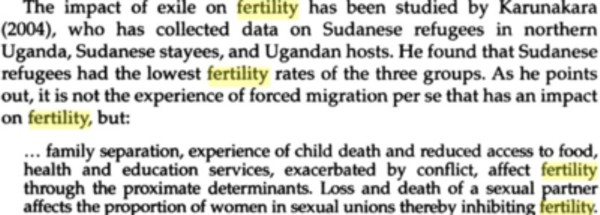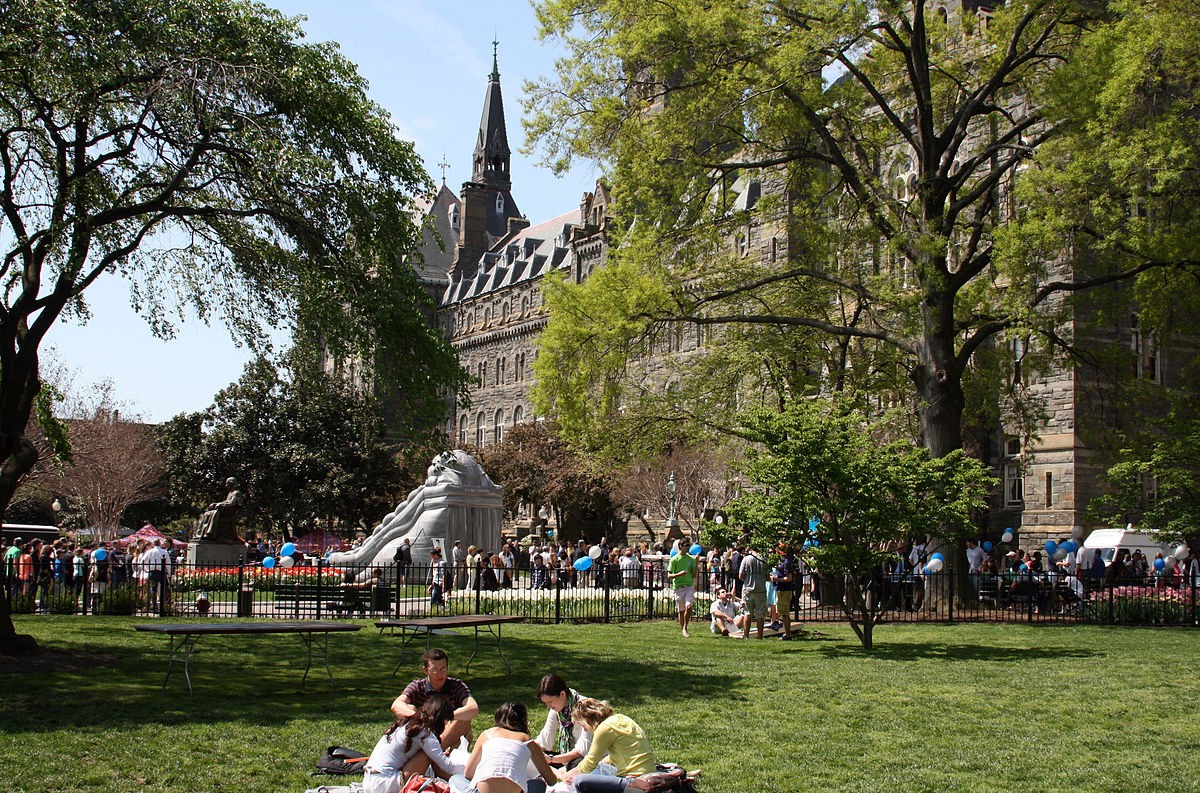Die grosse Flüchtlingskrise ist abgeflaut, so scheint es in Deutschland. Kanzlerin Merkels Beliebtheit erholt sich wieder. Doch der Schein trügt. Die Krise gewährt Deutschland nur eine Atempause, um bald zurückzukehren. Mit Macht.
Die Balkanroute ist weitgehend dicht. Und wird immer dichter. Dafür boomt die zentrale Mittelmeerroute von Libyen (90 Prozent) und Ägypten (10 Prozent). Praktisch bedeutet das: es kommen fast nur noch Schwarzafrikaner (90 Prozent). Die Syrer, Iraker und Asiaten schaffen es nicht bis zu den libyschen Häfen. Sie wurden durch den Balkanblock wirksam ausgesperrt. Insofern ist es falsch, immer noch von Flüchtlingskrise zu sprechen: nur Eritreer, Südsudanesen und ein paar ethnisch verfolgte Äthiopier können als Flüchtlinge gelten. Die Mehrheit der Nigerianer, Gambier und Nigerier sind unverfolgte Migranten.
Griechenland ist “vollgelaufen”. Nur mit grosser Mühe beherbergt Hellas die über 50.000 Flüchtlinge, die ohne Aussicht auf Weiterwanderung nach Schliessung der Balkanroute gestrandet sind. Obwohl sich herumgesprochen hat, dass Griechenland eine Sackgasse ist, kommen jetzt wieder mehr Bootsleute an, die es nicht glauben wollen.
Das zentrale Migrantenportal nach Europa ist in diesem Jahr Italien, das nun im Begriff ist, ebenfalls vollzulaufen. Einerseits fischt seine Marine Abertausende aus dem Meer, laden die ausländischen und privaten Rettungsdienste ihre Bootsleute ebenfalls in Italien ab, andererseits weigern sich Frankreich, Schweiz und Österreich an der Grenze, den Italienern Migranten abzunehmen, schicken illegale Einwanderer zurück. Überrascht stellen die Afrikaner fest, dass an den norditalienischen Grenzen Endstation ist, dass sie sich auf ein Leben in Italien einrichten und italienisch lernen müssen. Das ist in Norditalien besonders schwer, wo die xenophobe Nordliga-Partei wütet und teilweise auch regiert. Im Norden gibt es Jobs – fast immer schwarze – im Süden ist man freundlicher, aber dafür gibt es weniger Jobs und weniger Unterstützung.
Noch wurstelt sich Italien mit viel lokaler Intiative und menschlichem Einsatz durch. Die Regierung erschöpft sich in vergeblichen Appellen an Brüssel und Berlin. Warme Worte helfen nicht, wenn Italien nicht ein paar zig-tausend Migranten oder Flüchtlinge abgenommen werden. Lange kann dieses Spiel nicht mehr gehen, denn anders als Griechenland kann sich Italien wehren. Schon Anfang Dezember steht der Sturz der Regierung im Raum: was nach dem überzeugten Europäer Renzi kommt, kann recht ungemütlich für Berlin und Brüssel ausfallen. Aus vergeblichen Hilferufen könnten Ultimaten werden.
Noch ist Italien verwirrt. Sind die Rettungsaktionen auf dem Meer richtig oder falsch? Ist die Rettung von Menschen in Seenot ein kategorischer Imperativ? Oder sind die Retter Gehilfen der Schmuggler, die es mit ihrem Taxi-Service Verbrechern nur allzu einfach machen? Bauen die Retter eine breite Strasse übers Meer, die von der Hölle ins Paradies führt und Hunderttausende weitere Migranten aus den Tiefen Afrikas anlockt?
Wer weiss schon die richtigen Antworten auf diese Fragen? Italien sucht sie und ist zerrissen. Da gibt es Demografen und Politiker wie Riccardo Magi, die sagen, dass Italien jährlich 157.000 Einwanderer brauche, um den Rückgang der Bevölkerung im erwerbsfähigen Alter auszugleichen und die Sozialsysteme zu unterhalten. Verblüffenderweise erwartet man, dass in diesem Jahr zwischen 160.000 und 170.000 Bootsleute in Italien angelandet werden. Daher entsprechen sich Einwanderungsbedarf und Einwandererzahl fast genau – also alles in Butter?
Leider nicht. Denn die Ankommenden entsprechen, wie ein Bericht der Radikalen Partei ausführt, in keiner Weise dem Anforderungsprofil für Einwanderer. Sechzig Prozent der Asylsuchenden qualifizieren sich nicht für Asyl. Angeblich befinden sich in Italien Europas am wenigsten qualifizierten Immigranten. Von ihnen gelten 48 Prozent als der Armut ausgesetzt. Man rechnet damit, dass die nicht für Asyl Anerkannten im Lande bleiben, keine reguläre Arbeit finden können, zu Schwarzarbeit verdammt sind und die Sozialsysteme – beispielsweise das Gesundheitswesen – belasten. Der italienische Staat gibt pro Migrant und Jahr 12.000 Euro aus, während Grossbritannien sich laut Bericht mit weniger als 2.500 Euro begnügt.
Das Dilemma der Immigranten lässt sich derzeit in Italien mit dem blossen Auge sehen: die Asiaten fügen sich ziemlich schnell in die Wirtschaft ein, sind fleissig und kreativ im Auffinden von Lebensunterhalt spendenden Lücken. Die Araber finden sich im Handel, in der Strassenkriminalität und in der saisonalen Strandwirtschaft, aber auch als Hilfsarbeiter. Die Schwarzafrikaner leisten schlecht bezahlte Erntearbeit unter üblen Bedingungen oder betteln vor Supermärkten, Cafes und Restaurants.
Ausgerechnet die Afrikaner sind es, die jetzt mit Macht in Italien einströmen. Viele von ihnen können ausser der Kraft ihrer Arme wenig bieten, sind Analphabeten*), weisen keinerlei Ausbildung auf oder ihre Qualifikationen entsprechen einer Wirtschaftsstufe, die in Italien Jahrzehnte zurückliegt. Immerhin erlernen sie einfachstes Italienisch relativ leicht – die Sprache eignet sich offenbar für einen Schnelleinstieg. Sobald es jedoch um lesen, schreiben und Berufsterminologie – oft dialektgefärbt -- geht, brauchen Migranten Unterricht, den es kaum gibt.
Schwarzarbeit mit Ausbeutung wirkt auf viele Immigranten nicht abschreckend, denn es gibt in ihren Heimatländern den Begriff der legalen Arbeit mit Lohnsteuer und Sozialversicherung garnicht oder nur für wenige Privilegierte. Oft sind es sozial engagierte Italiener, die in erster Linie gegen die Ausbeutung der Fremden protestieren oder den Protest organisieren.
Makroökonomisch betrachtet, ist der gegenwärtige Zustrom aus Afrika eine ziemliche Katastrophe für Italien. Die Einwanderer schliessen keine demografische Lücke: die Zahl der qualifizierten Arbeitsfähigen nimmt weiter ab. Steigende Frauenbeschäftigung und Rentnerarbeit kompensieren zwar teilweise die Schrumpfung der Kohorten im arbeitsfähigen Alter, doch das reicht nicht. Durch den Rückgang der Zahl der Beschäftigten erhöht sich auch ohne Neuinvestitionen die Kapitalausstattung je Arbeitsplatz, steigen daher (theoretisch) die Arbeitsproduktivität und das Einkommen pro Kopf, während das Bruttoinlandsprodukt stagnieren oder schrumpfen kann. Tatasächlich stagniert das italienische BIP seit 2008 – die Faktorproduktivität leider auch. (Doch das ist ein anderes Thema)
Auf lange Sicht betrachtet, ist die jetzige Einwanderung sicherlich ein Segen für die Wirtschaft. Doch bis die Einwanderer, vor allem die aus Afrika, einen Beitrag zur Wertschöpfung leisten, der ihre sozialen Kosten übersteigt, werden Jahre, wenn nicht Jahrzehnte, vergehen. Vielleicht wird erst die zweite oder dritte Generation es schaffen, sich aus der Abhängigkeit von staatlichen Leistungen zu befreien.
Bis dahin muss das Land eine Durststrecke bewältigen und es stellt sich für Viele die Frage, ob Italien mit seiner schwer reformierbaren, von Korruption und organisierter Kriminalität gezeichneten Wirtschaft sich das überhaupt leisten kann. Bange Blicke richten sich auf Griechenland: wie geht Hellas mit den Problemen um, die 50.000 festsitzende Flüchtlinge schaffen?
"Bislang.wurde die Einwanderung insgesamt gut verwaltet", sagt Piero Fassino, der Ex-Bürgermeister von Turin, "aber was die Zahlen anlangt, kommen wir an die Schwelle der Nicht-Verwaltbarkeit." Als Beispiel verweist Fassino auf den Umstand, dass Sozialwohnungen mittlerweile bevorzugt an Einwanderer vergeben werden, weil die mehr Kinder haben.
Was auch immer Italien mit den Flüchtlingen und Armutsmigranten tun wird: die demografische Lücke bleibt bestehen. Nicht nur das: sie wächst, denn tausende junge Italiener emigrieren auf der Suche nach Arbeit im Ausland, die sie in der Heimat nicht finden können. “Lernt, lernt, lernt und flieht!” fordert der Lehrer Alex Corlazzoli seine Schüler auf. Schon im Kindesalter werden junge Italiener auf Auswanderung eingestimmt. Im Jahr 2015 haben laut einem Bericht der Stiftung “Migrantes” 107.000 Bürger Italien verlassen, die Hälfte davon junge Menschen. Und es sind nicht mehr wie einst vorwiegend die Armen aus dem tiefen Süden, die emigrieren. Jetzt sind es auch die Kinder der norditalienischen Bourgeoisie, die Top-Schüler und Akademiker, die das Land verlassen mit der Absicht, nicht zurückzukehren.
Wie soll das Land hunderttausende Immigranten aufnehmen, wenn es seinem eigenen Nachwuchs nicht genug Arbeitsplätze bietet und ihm der brain drain daher tausende seiner Besten raubt? Je mehr sich Italien dieser Dichotomie bewusst wird, desto ultimativer wird die Forderung werden, dass ihm die Nachbarn einen grossen Teil der Last abnehmen. Deutschland sollte begreifen, dass die nächste Einwanderungswelle sich in Ventimiglia, am Hauptbahnhof von Mailand, in Como, Verona und Chiasso staut. Einwanderungswelle? Nein, Afrika kann Hunderttausende an die Küste von Libyen schicken, Jahr um Jahr, auf Jahrzehnte hinaus. Auch Kanzlerinnen-Reisen nach Afrika werden das höchstens um eine Stelle hinter dem Komma ändern.
Benedikt Brenner
Die unbegleiteten Jugendlichen
Immer mehr afrikanische Familien schicken Minderjährige -- meist zwischen 14 und 17 Jahren -- nach Italien. Sie stellen mittlerweile 15 Prozent aller Ankömmlinge dar. Ihre Unterbringung ist insofern schwierig, als die Kapazitäten bereits ausgelastet sind durch andere Minderjährige, vor allem Albanier.
Albanische Familien haben nämlich entdeckt, dass es sinnvoll ist, ihre Sprösslinge in eine Art Internat ohne Ferien in Italien zu stecken. So zieht der italienische Staat die jungen Skipetaren auf, bringt ihnen bessere Schulbildung und vor allem italienisch bei, wodurch sie nach dem Schulabschluss eine Aufenthaltserlaubnis und einen fliegenden Start ins Berufsleben erzielen. In manchen Gegenden massieren sich die Albanier: in der Emilia-Romagna sind 55 Prozent der Betten für unbegleitete ausländische Minderjährige mit Albaniern belegt. Sie kosten die Gemeinden zwischen 100 und 120 Euro pro Tag, wie La Repubblica am 29. September berichtete. Verzweifelt versuchen die Gemeinden, die finanzielle Belastung loszuwerden -- ohne viel Erfolg. Die Stadt Faenza schreibt jetzt an die Eltern in Albanien, dass die unbegleitete Verschickung ein Delikt darstellt und versucht, die Eltern auf Kostenersatz zu verklagen.
In Albanien mag das den Enthusiasmus für die Kinderverschickung etwas dämpfen. In Afrika dürfte der Effekt -- falls man die Eltern identifizieren kann -- gleich Null sein.
*) In Italien waren 26% der hilfesuchenden Asylbewerber 2015 laut Caritas-Bericht Analphabeten.
--BB




